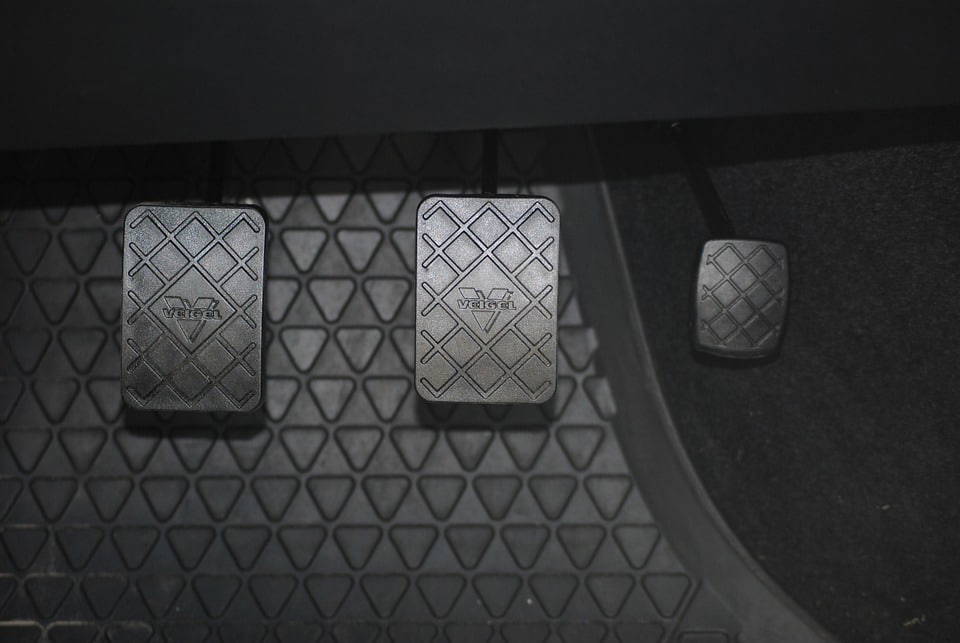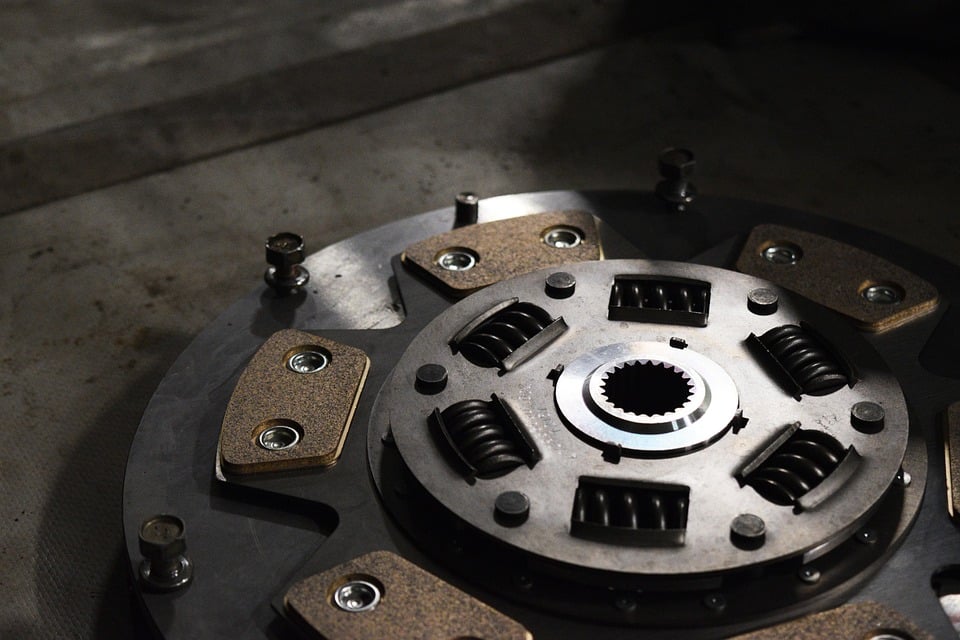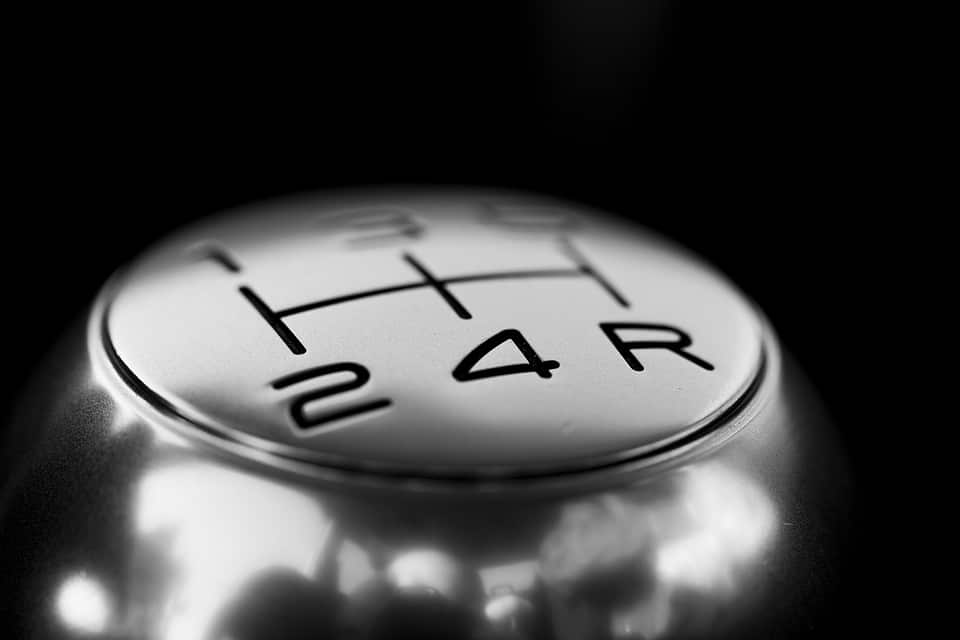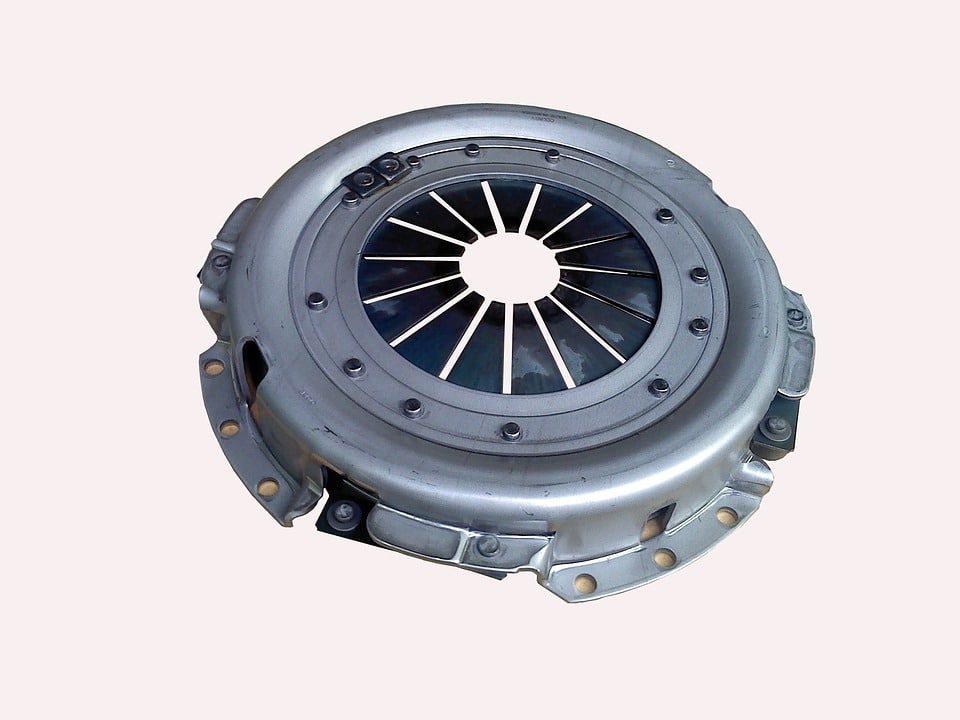What is a clutch? How does a clutch work in a manual car?
A clutch is a critical part of any car with manual transmission, transferring power from the internal combustion engine to your car’s wheels and enabling smooth gear changes, it also allows the car to come to a complete stop whilst the engine is still running.
Do automatic cars have a clutch?
Most conventional automatic cars do not have a clutch, they are instead fitted with a torque converter which helps the gearbox select the right gear for the car’s speed without any input from the driver. These have fewer parts than a manual transmission clutch and therefore have fewer things that are likely to go wrong.
Do electric cars have a clutch?
Most electric cars are automatic and therefore do not need a clutch, they are also more efficient within a wide power band so do not need the help of gears to match the speed of the wheels to that of the motor.
What makes up a clutch?
The single plate friction clutch present in most manual transmission cars is made up of three key pieces; the clutch plate, the pressure plate and the flywheel. When you take your foot off the clutch pedal, all three of these elements are engaged to match the speed of the engine and the transmission. When you press the clutch pedal to change gear, springs pull the pressure plate away from the clutch plate so that you can smoothly change gear.
Wear or damage to any of these three components can mean your clutch will need replacing.
Be aware that your vehicle may contain other types of clutch, such as dry multi-plate friction and wet multi-plate friction clutches, although these are mainly present in motorcycles or semi-automatic cars.
How long do clutches last?
Your clutch can last anywhere between 20,000 to 150,000 miles (usually around 80,000 miles) and, although it is made to be hardwearing, it can still wear out or break.
Luckily for you, there are often several signs your clutch is on its way out before it eventually goes.
What are the Signs That Your Clutch Needs Replacing?
There are many signs that you might be dealing with manual clutch failure, therefore knowing these in advance can save you the cost of breakdown recovery and hours waiting at the roadside.
Clutch failure symptoms
Slipping clutch
If your clutch is slipping causing a momentary loss of acceleration as you release the pedal after you change gear and notice a burning smell in your car it can be a sign your clutch is worn out and about to fail. A clutch slipping shouldn’t be ignored, if you notice this take it to your local garage immediately.
Causes of a slipping clutch: The material on the friction plate is starting to wear out
Spongy clutch
A spongy feeling when pressing the clutch pedal is a sure sign of your clutch beginning to wear. If left, your clutch pedal can seemingly drop towards the floor with very little pressure.
Causes of a spongy clutch: Issues with the hydraulic system, particularly the release mechanism.
Difficulty changing gears
Issues with changing into first gear and reverse gear can be a sign of issues with your clutch. There are other causes of difficulty changing gear that will need to be ruled out by a professional mechanic like our team at Peverell Garage.
Causes of gear change issues: Clutch disk not releasing, caused by low fluid in the hydraulic system, wear or damage within the clutch cylinders or potentially issues with the gearbox.
Clutch disengages without using the pedal
Keep an eye out for your clutch disengaging without having to press the clutch pedal, this can be a sign that your clutch may need replacing.
Causes of your clutch disengaging: Faults in the release system (release bearing or slave cylinder etc.).
You can rev the engine but have poor acceleration
When you press the accelerator you expect the car to begin to move or to speed up. However, if you notice that your vehicle revs but doesn’t accelerate as much as you would expect it to then your clutch could be to blame.
Causes of engine revving but failure to accelerate: Transmission slipping.
A squeaking or grumbling noise when using the clutch
If your clutch pedal makes noises when engaging and disengaging the clutch this is sign of wear in the release bearing. This will need to be replaced but is generally done as part of a clutch replacement and isn’t carried out separately.
What can cause a clutch to wear prematurely?
Your driving habits can have a huge impact on how long your clutch lasts, there are a few things that you can avoid doing to help make your clutch last longer.
‘Riding’ the clutch
Not taking your foot fully off the clutch pedal between gear changes can cause the clutch to partially disengage and can lead to parts of the clutch overheating and wearing excessively.
‘Balancing’ on the clutch on hills
Holding the car stationary by using the clutch on hills and slopes rather than by braking or using the handbrake can also cause excessive strain through the components and lead to premature failure.
Keeping the car in gear
Whilst waiting at a red light or whilst being parked, keeping your car in neutral avoids putting excess strain on the clutch mechanism.
shifting gears too slowly
Aim to change gear as quickly as possible once you have your foot on the clutch. Don’t be too quick though – grinding the gears by taking your foot off the clutch too soon can also cause plenty of damage.
Replacing a clutch
How Much Does a New Clutch Replacement Cost?
The exact cost will vary depending on the make and model of your car and whether any additional damage has been caused by the clutch failing. You can expect to pay around £400 for a clutch replacement.
How long does it take to fix a clutch?
The timing of fixing a clutch will depend on how soon we can get hold of the part for your make and model vehicle.
Clutch replacement at Peverell Garage
Here at Peverell Garage in Plymouth our specialist team of mechanics are able to check your clutch before we carry out any repair work. If it is your clutch that has gone then we will order the parts and get your replacement clutch fitted as soon as possible.
It is important that you keep an eye out for the warning signs outlined in this blog and get your car to us to be checked if you notice any of them. You can call our team on 01752 266099, we would be more than happy to help.
What to do if you clutch fails whilst driving
If your clutch fails whilst you are driving you will need to pull over at the side of the road immediately and await recovery. If you are local to us, you can ask for your car to be brought to our expert team here at Peverell Garage for replacement or diagnostics.




